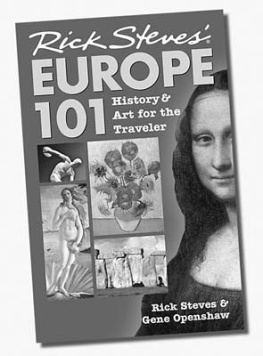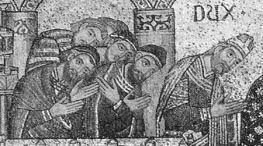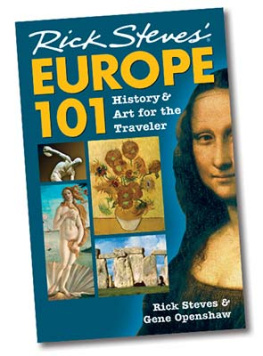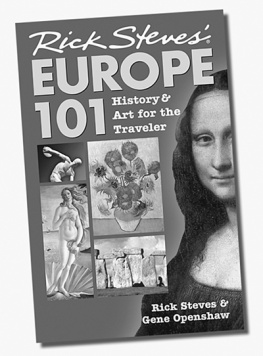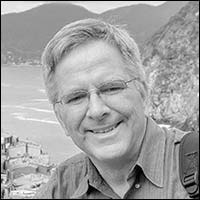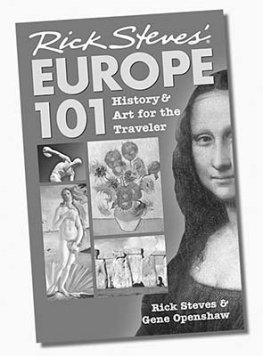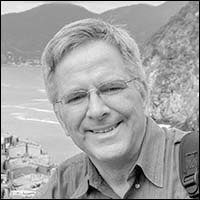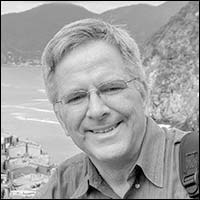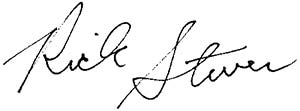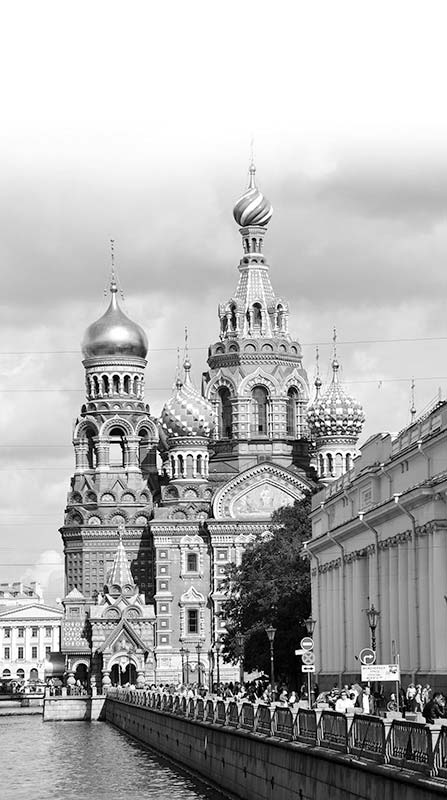Rick Steves
SNAPSHOT
St. Petersburg, Helsinki & Tallinn
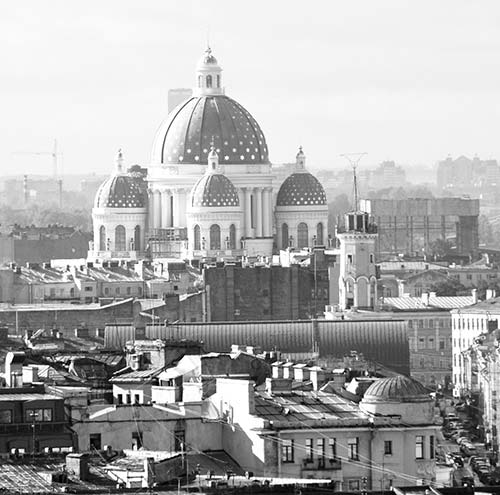
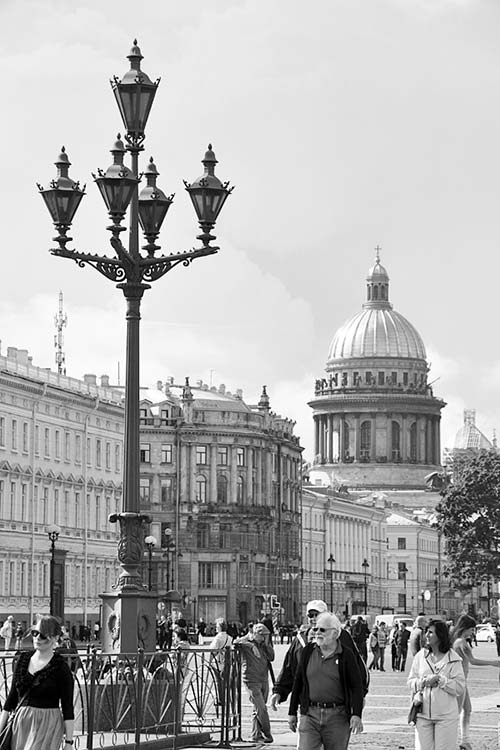
This Snapshot guide, excerpted from my guidebooks Rick Steves Scandinavia and Rick Steves Northern European Cruise Ports, introduces you to the three great cities of eastern Baltic Sea: St. Petersburg, Russias showpiece window on the West, which was custom-built by the czars to impress the world; the slick Finnish capital of Helsinki, with a livable urban core, world-famous architectural gems, inviting harborfront market, and a knack for design; and the charming Estonian capital of Tallinn, with fine viewpoints, oodles of cobbles, and an irrepressible Estonian spirit. At these chilly northern latitudes, the summer travel season is short, but the charms are ample. Ogle St. Petersburgs opulent palaces, boulevards, and onion domes. Squeeze between Finns and squat on a wooden bench to sweat in a sauna. And browse the charms of Tallinn, one of Northern Europes most atmospheric old towns. With its ties both to Scandinavian kings and to Russian czars of yore, youll see how East meets West here in Europes north. All three of these cities are well-connected by short and scenic boat trips.
To help you have the best trip possible, Ive included the following topics in this book:
Planning Your Time, with advice on how to make the most of your limited time
Orientation, including tourist information (abbreviated as TI), tips on public transportation, local tour options, and helpful hints
Sights with ratings:
Dont miss
Try hard to see
Worthwhile if you can make it
No ratingWorth knowing about
Sleeping and Eating, with good-value recommendations in every price range
Connections, with tips on trains, buses, and boats
Practicalities, near the end of this book, has information on money, phoning, hotel reservations, transportation, and more.
To travel smartly, read this little book in its entirety before you go. Its my hope that this guide will make your trip more meaningful and rewarding. Traveling like a temporary local, youll get the absolute most out of every mile, minute, and dollar.
..Hyv matkaa... Head reisi...Happy travels!
Enigmatic. Intimidating. Fascinating. Boasting some of the most spectacular cities, churches, and fortresses on earth, wrapped in a culture thats as monolithic and xenophobic as its onetime rival (read: us), Russia is an exciting frontier for adventurous Western travelers. Though no longer the great military and political power that it was during the Cold War, Russia remains a country of huge natural resourcesenergy, minerals, forests, rivers, and arable land.
Russia was poor and remote for centuries, with a good part of the population bound in serfdom until the 1860s. In the late 19th century, Russia began to industrialize, built closer ties to Europe, and fostered writers such as Tolstoy, Dostoyevsky, and Chekhov.
One of the new ideas that came to Russia from the West was communism. Led by Lenin and Stalin, the communist experiment lasted almost 75 years before it collapsed in 1991. Since then, despite widespread corruption, Russia has managed to build up something akin to a free-market economy. In urban shopping districts, youll watch Russians perusing at least as many choices as American shoppers have.
Recently, Russia has taken baby steps toward making it easier for tourists to come on short visits to St. Petersburg, especially by ship. But a wildly fluctuating currency, still-improving service standards, limited knowledge of English, and a general lack of user-friendliness continue to challenge. And complicated, expensive visa requirements make Russia an uninviting destination for independent American travelers. However, the travel experience in Russia is slowly improving, year by yearparticularly as the country has geared up for the world spotlight as the host country of the Winter Olympics in 2014 and the World Cup in 2016.
Traveling in Russiaor even just tuning into the news from thereleaves a strong impression of a place that, while massive and powerful, is still finding itself in the post-communist world. Yeltsin-era reforms and optimism have faded. Recent changes in the law have alarmed lovers of free speech, gay-rights advocates, and anyone who supports democratic ideals. And, more than a decade and a half into his quasi-authoritarian rule, Vladimir Putin casts a long shadow over the worlds largest country.
Russia Almanac
Official Name: Russian Federation ( ), or just Russia.
Population: Russia is a vast, multiethnic country of more than 142 million people, including a wide range of ethnic-Asian minority groups (one in five Russians is not ethnically Russian).
Latitude and Longitude: St. Petersburg sits at about 60N and 30E. Its nearly as far north as Canadas Northwest Territories and Yukon, and farther east than Istanbul.
Area: 6.6 million square miles, nearly double the size of the US.
Geography: The worlds biggest country by area, Russia stretches from Europe all the way across Asia to Alaska. The European continent contains only about a quarter of Russias land, but three-quarters of its population.
Biggest City: Moscow, Russias capital, is home to 11.5 million peoplemaking St. Petersburg, the second city, seem small with just 4.8 million.
Economy: Russias Gross Domestic Product of $2.5 trillion makes it the worlds seventh-biggest economythough its per capita GDP ($17,700) ranks around 70th.
Currency: The Russian ruble (R, official RUB) has been in flux recently. Check the latest rates online.
Government: As a federation, Russia has 46 provinces (like the 50 US states)which include oblasts, republics, and federal cities. The country is firmly led by President Vladimir Putin and his handpicked associate, Prime Minister Dimitry Medvedev.
Language: The native language is Russian, which uses the Cyrillic alphabet. For details, see .
Flag: Russias Tricolor flag consists of equal horizontal stripes (top to bottom): white, blue, and red.
The Average Russian: Lives only to age 59 and consumes four gallons of alcohol a year, much of it vodka.
Todays Russia is wrestling with an ostensibly free-market economy thats dominated by the monopolistic instincts of the communist past, troubling concerns about ethnic diversity, and an increasingly stratified society (with a tiny and extremely wealthy upper class, a huge and desperate lower class, and little room in the middle). Bribery is an integral part of the economyestimated at 20 percent of GDP. A corporate survey found its harder to do business in Russia than in Bangladesh, Yemen, or Pakistan.


